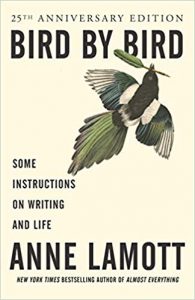Podcast: Play in new window | Download
With two weeks to go in the year, most of us face the choice of getting IMPORTANT things done . . . or not. The “not” result can easily happen when on the one hand we feel pressure(d), and on the other we feel a mix of “there’s just no way to get it all done,” and “I’m so ready for it all to be over.” Here are five solutions to this rock-and-a-hard place conundrum:
1. Focus and Commit to what’s most important. What will make the biggest difference to you and your team(s) to have done by year end?
2. Place results over effort. Know what the results are. Keep them up front. Effort, if not expected to generate results is a waste of effort!
3. Do the most important first. Use your best morning-brain on what matters most.
4. Lead by 2. Two of the greatest assets of LX2 are: The encouragement and the accountability that flow when you ask someone to support you in these ways. Tell them what you’re after, why it matters, and how they can best help.
5. As Annie Lamott famously told the story of her father talking to her little brother about the science report on birds that he had neglected to do for many weeks and now sought his dad’s help help: “bird by bird,” son, “bird by bird.” (Lamott borrowed her father’s line for the title of her wonderful book on writing, Bird by Bird.)
Since 1977 when I dropped Spanish 101 after one semester of college, I’ve alternately thought of learning Spanish as a “bucket list wish” or with the sinking feeling, “I’ll never get it done.” Now, I’ve done 70 straight days on Duolingo (pat self on back) and I’ll soon surpass what I knew (and forgot) 42 years ago.
Focus, commit and then go bird by bird, word by word, day by day to lead to
Lead with your best self.


HI Dan,
As always I appreciate your posts. I think you and I have discussed this, and I believe I addressed it in my talk to you your class (or maybe I didn’t), but when faced with a lot to do, it’s important to show yourself progress. They’ve done studies that stress isn’t influenced as much by the cumulative weight of your burden, but by the number of items that are burdening you. In other words – and there is a paradox here – one ball of stress that is 1,000 pounds doesn’t burden you nearly as much as 10 balls of stress that each weigh 10 pounds, even tho the former is 10X as weighty. Yet the one ball of stress will eventually become overwhelming because you don’t see youself making progress. Bird by bird is a great approach. But it goes further than that, it’s important to be able to knock out the little things because the stress of a bunch of little things weighing on you will keep you from addressing the big thing.
If you knew me you’d know i’m grateful for these weekly thoughts!
Ken
Ken,
You did talk about this thousand pound ball in class. What is the practical result of this finding? I think it’s mostly about having visible reminders of the things you do. (Isn’t that as true about breaking that big project up into incremental wins?). You say “knock out the little things.” And there is much to be said for the momentum this generates. But I think there is an important security check that needs to be run on on this strategy, which is the question: Are the little things distracting me from the Big Thing? For example, I suspect that during “dead week” students have knocked out a million little tasks, e.g., cleaning the fridge, returning books, catching up with old friends. These are great and may build momentum, or they may be major work avoidance! With 2 weeks left, I need to zero in on the absolute vital. Focus on the core, not the million distractions!
I know you, and I’m grateful for you!!!
Dan